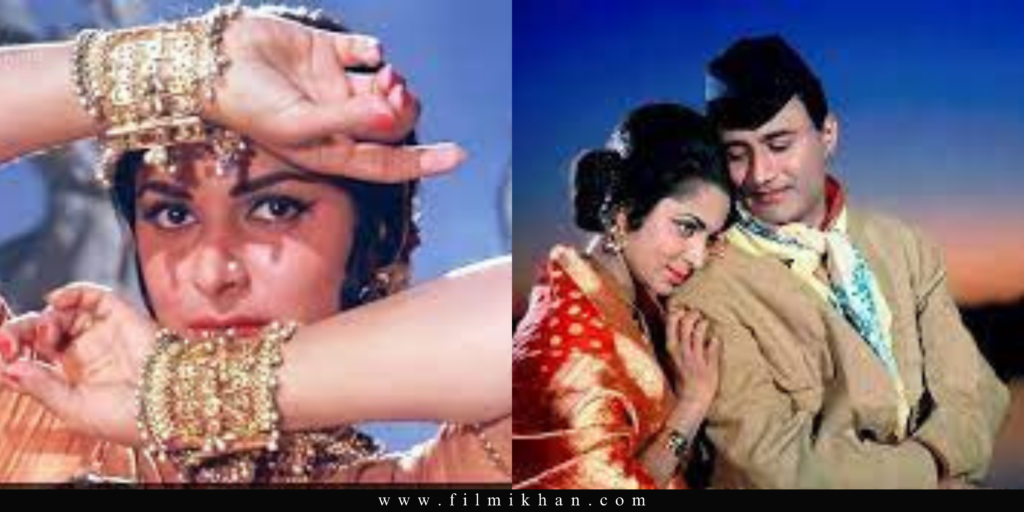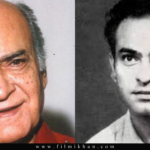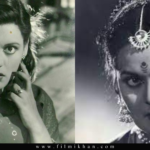In the dazzling realm of cinema, certain individuals etch their names in the annals of history through their extraordinary talent and sheer passion for the craft. One such luminary is the venerable actress, Wahida Rahman.
Waheeda Rehman was born on May 3, 1938, in Chengalpattu, Tamil Nadu. She is a legendary Indian actress whose career has spanned over six decades. She is widely regarded as one of the finest actresses in the history of Indian cinema, celebrated for her versatile performances and timeless beauty.

Waheeda started her filmi career with the Tamil film Alibabavum 40 Thirudargalum as a dancer. However, the Telugu film Rojulu Marayi (1955) released prior to that film where she performed to in a dance.
Waheeda Rehman’s journey in the world of entertainment began when she was spotted by Guru Dutt, a renowned filmmaker, during a dance performance at a college festival. Impressed by her grace and talent, Guru Dutt offered her a role in the film “C.I.D.” (1956), marking the beginning of her illustrious acting career.
One of the defining moments in Waheeda’s career came with her collaboration with Guru Dutt in the classic film “Pyaasa” (1957). Her portrayal of the enigmatic and sensitive Gulabo earned her critical acclaim and established her as a leading actress in the industry. The duo continued to work together in iconic films like “Kaagaz Ke Phool” (1959), “Chaudhvin Ka Chand” (1960) and “Sahib Bibi Aur Gulam” (1962) further solidifying her reputation as an exceptional actress.
Waheeda Rehman’s ability to seamlessly transition between roles of a traditional Indian woman and a modern, independent character set her apart. She showcased her versatility in films like “Guide” (1965), where she played the complex character of Rosie Marco. Her nuanced performance in the film earned her the Filmfare Best Actress Award and garnered international recognition.
Throughout the 1960s and 1970s, Waheeda Rehman continued to deliver memorable performances in films such as “Teesri Kasam” (1966), “Ram Aur Shyam” (1967), “Paththar Ke Sanam” (1967), “Neel Kamal” (1968), “Aadmi” (1968), “Khamoshi” (1969), and “Reshma Aur Shera” (1971). Her collaboration with top-notch directors and actors of the time, including Raj Kapoor and Dev Anand, further solidified her status as a cinematic icon.
During ’70s, her successful films include Kabhi Kabhie (1976), Trishul (1978), Jwalamukhi (1980), Naseeb (1981), Namkeen (1982), Dharam Kanta (1982), Namak Halaal (1982), Coolie (1983), Mashaal (1984), Chandni (1989) and Lamhe (1991). Kabhi Kabhie, Namkeen, Chandni and Lamhe garnered her nominations for the Filmfare Award for Best Supporting Actress.
Initially, she was supposed to play the role of Amitabh Bachchan’s mother in Karan Johar’s family drama film Kabhi Khushi Kabhie Gham (2001). However, after shot few scenes, she choose to drop out of the film due to her husband’s death in November 2000; subsequently, her role was then played by legendary actress Achala Sachdev.
While her frequency of film appearances decreased in the later years, Waheeda Rehman remained a sought-after actress, taking on roles that allowed her to display her acting prowess. She made a successful transition to character roles, earning acclaim for her performances in films like Om Jai Jagdish (2002), Water (2005), 15 Park Avenue (2005), Rang De Basanti, (2006) and Delhi 6 (2009).
She was awarded Dadasaheb Phalke Award: India’s highest award for cinematic excellence for the year 2021, awarded in 2023 at the 69th National Film Awards.
Apart from her acting career, Waheeda Rehman has also served as a jury member at various film festivals and received numerous accolades for her contributions to Indian cinema. In 2011, she was honoured with the prestigious Padma Bhushan, one of the highest civilian awards in India.
Waheeda Rehman’s enduring legacy lies not only in her captivating on-screen presence but also in her ability to break traditional Molds and portray women with depth and complexity. Her remarkable journey continues to inspire generations of actors and cinephiles, making her an enduring figure in the annals of Indian cinema.







